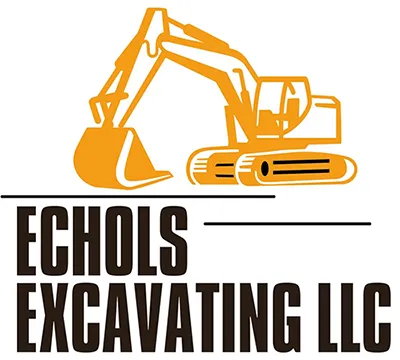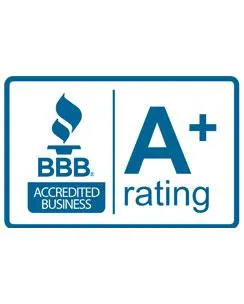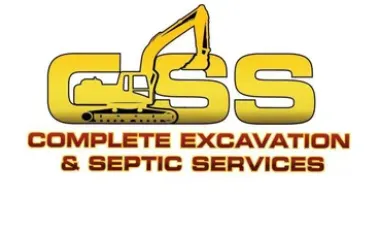
Serving Counties: Southeastern Ohio and Surrounding Areas
Blogs

What Is the Cost of a Septic System Near Stark County? (And What Most Homeowners Forget to Budget For)
1. Why You're Googling “Septic System Costs” (And What You're Really Worried About)
If you're here, you're probably not reading this for fun. You’re either building a home, replacing a system that’s gone belly-up, or you’ve just found out your dream property doesn’t have sewer access. And now, you're staring at a stack of questions—most of them starting with: "How much is this going to cost me?"
We get it. You’re not made of money. And even if you’ve saved up, nobody likes unexpected bills—especially the kind that come with backhoes and health department paperwork.
At Echols Excavating LLC, we’ve worked with homeowners all over eastern and southeastern Ohio (and even into Brooke County, West Virginia), and we’ve seen the same fears pop up again and again:
"What if the price keeps going up?"
"Am I being taken advantage of?"
"What am I forgetting?"
This article is for you. No sugar-coating. No sales pitch. Just the honest truth about what a septic system costs near Stark County—and what most folks forget to plan for.
2. Who Needs a New Septic System in Stark County (And Why Timing Matters)
If your property isn’t connected to a municipal sewer line, you’re in septic country—like much of Stark County and its surrounding rural areas. Whether you're dealing with new construction, a failing system, or expanding a home and needing a bigger setup, timing matters.
Why? Because waiting until something fails usually means you’ll pay more, rush decisions, and have fewer options.
Planning ahead gives you room to think clearly, get bids, and avoid being at the mercy of the weather or overloaded contractors during peak season (yes, that’s a thing).
3. The Average Cost of a Septic System Near Stark County
Let’s get to it.
In and around Stark County, here’s what most homeowners can expect:
Basic Septic System (gravity-fed, conventional): $5,000 – $12,000
Mound System or Engineered Design (for poor soil/drainage): $12,000 – $20,000+
Aerobic Treatment System (advanced treatment): $10,000 – $18,000+
These numbers vary based on your land, the type of soil you’ve got, and local regulations. You might hear lower prices tossed around online, but be cautious—those often leave out critical details (we’ll cover those next).
4. What Impacts the Price? The 7 Key Factors You Should Know
Here’s what can move your quote up or down:
Soil quality – Sandy, loamy soil is cheaper to work with. Clay? Rocky ground? Wet soil? Not so much.
System type – Conventional systems are cheaper. Mound systems or aerobic units come with more parts and complexity.
Size of your home – More bedrooms = larger tank and bigger drain field.
Permit and design requirements – Counties all have different rules (Stark’s process is different than, say, Athens or Monroe).
Accessibility – Is your yard wide open and flat? Or are we squeezing between trees and power lines on a hill?
Distance from your house to the tank or field – More pipe = more trenching.
Water table level – High water tables usually mean you need specialized (read: more expensive) systems.
5. Hidden Costs That Catch Most Stark County Homeowners Off Guard
This is where people get surprised. The big mistake? Budgeting for just the tank and not the whole process.
Here’s what folks often overlook:
Perc test and soil evaluations – $300–$1,200 depending on your county and complexity
System design fees – Especially if you need an engineer
Pump systems or alarms – Not every system is gravity-fed
Electrical hookups – Aerobic and pump systems need power
Tree removal or grading – Nature doesn’t always cooperate
Rock removal or blasting – You’d be shocked what’s under the surface in this part of Ohio
We once had a project near Coshocton where the rock was so bad we spent more time breaking ground than installing the tank. It added about $2,500 to the budget—but the homeowner was glad we planned for it early.
6. Excavation: Why the Hole Costs More Than You Think
Most folks think, “You dig a hole, drop in the tank, cover it up. Done.” Not quite.
Excavation is a skilled process. It includes:
Site planning to avoid underground utilities
Shaping and grading the land for proper drainage
Safely hauling and managing soil or rock
Restoring your yard so it doesn’t look like a bomb went off
At Echols Excavating, this is where we live. It’s not glamorous, but it’s where we keep homeowners out of trouble. A rushed or careless dig can lead to system failures, poor drainage, or erosion issues down the road.
7. Permits, Inspections, and Red Tape: Budgeting for the Boring Stuff
Let’s be honest—nobody likes dealing with paperwork. But it’s part of the game.
Each county (including Stark) requires:
Health department permits
Inspections at different phases
Final approval before you can cover anything up
Some systems also require ongoing maintenance agreements—especially if you have an aerobic treatment unit.
These fees can range from $300 to over $1,000 depending on your county. And if you skip them? Fines, delays, and headaches.
8. Comparing System Types: Conventional vs. Mound vs. Aerobic
If you’re not sure what kind of system you need, here’s a quick cheat sheet:
9. Repair vs. Replacement: What’s the Better Deal Long-Term?
If your system is barely hanging on, it might be tempting to patch it up.
But consider this: Constant repairs (pumps, filters, backups) can quickly add up. We’ve seen homeowners spend $4,000 over five years—when a new system would’ve only cost $9,000.
Do the math. Sometimes the replacement is the smarter long-term call.
10. The Cost of Doing It Wrong (And How to Avoid That Nightmare)
Let’s be real: A cheap septic job can get very expensive, very fast.
We’ve been called in to redo installations where:
Tanks weren’t level and cracked within two years
Drain fields were too short and flooded yards
Systems didn’t pass inspection and had to be torn out
In one case near Belmont County, a homeowner went with the cheapest bid. The installer skipped the permit process. The result? $6,000 in fines and a full re-do. That’s not a lesson you want to learn the hard way.
11. How to Plan Your Budget Like You’ve Done This Before
Here’s a rough budget formula that works for most folks:
System + Installation: $8,000 – $14,000
Permits + Testing + Design: $1,000 – $2,500
Unexpected extras (grading, rock, pumping): $1,000 – $3,000
Total: Plan for $10,000 – $18,000
Leave wiggle room. Septic installs can be unpredictable. Better to come in under budget than scramble for more cash halfway through.
12. Why It Pays to Work With a Local Company That Understands Your Land
We’re not the biggest excavation company out there—and we’re okay with that.
We live here. We dig here. We deal with the same clay, sandstone, and county inspectors you do. We’ve seen what works in Noble County and what doesn’t in Perry. We know which permit offices close early and which roads flood after a big rain.
When you work with someone local, you’re not just buying a system. You’re getting experience that keeps you out of trouble—and saves you money in the long run.
13. What Smart Homeowners Near Stark County Budget For
If you're planning for a septic system in Stark County or nearby, don't just focus on the tank and pipe. Think about the whole picture—testing, permits, excavation, system type, and those sneaky extras that most people forget.
At Echols Excavating LLC, we’re here to help you make smart choices—whether we’re doing the job or not. Because this isn’t just about a hole in the ground. It’s about peace of mind.
And if we can help you get there with less stress, fewer surprises, and no horror stories, we’ve done our job.
Hours: 8:00am-5:00pm M-F
Extended hours by appointment only.
WE SERVE OHIO: Guernsey, Noble, Belmont, Washington, Monroe, Morgan, Athens, Muskingum, Licking, Coshocton, Tuscarrarus, Stark, Harrison, Perry, Hocking, Fairfield, Meigs, Holmes, Carrol, Jefferson; WEST VIRGINIA: Brooke
All rights reserved | Client Support Area




Hours:
Mon - Fri 9:00 am - 5:00 pm
Extended hours by appointment only.



